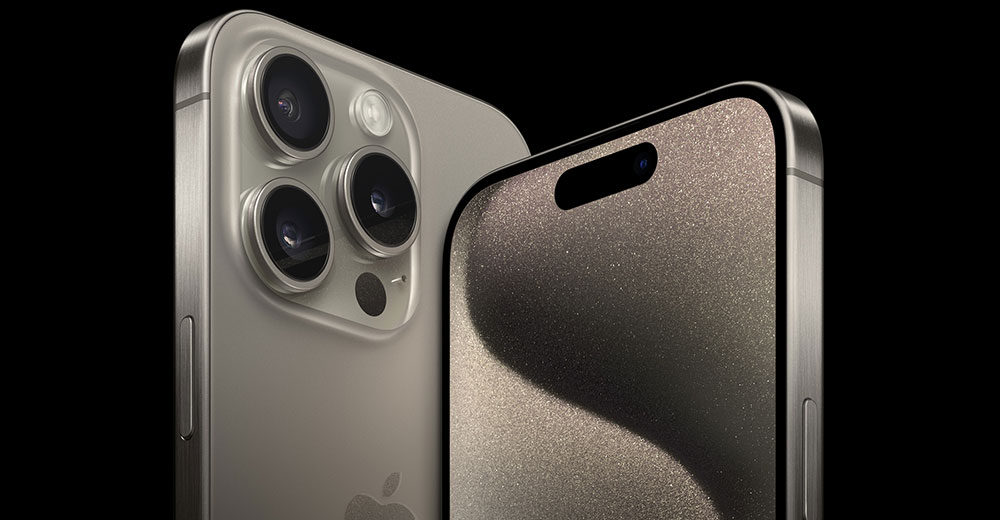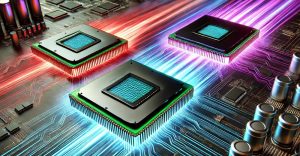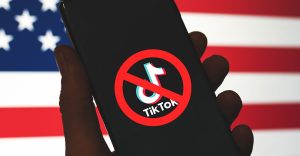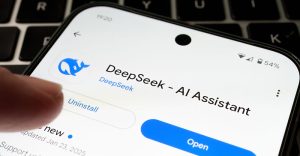Pundit Predicts Apple AI Will Be Bound to iPhone, Analysts React

While the major generative AI service providers depend on the cloud to power their large language models, Apple will be taking a different tack with the next version of its mobile operating system, which is set to be revealed in June.
Bloomberg’s Mark Gurman, in his weekly newsletter published Sunday, predicted that the AI features planned for iOS 18 will be performed on the iPhone and not in the cloud.
“As the world awaits Apple’s big AI unveiling on June 10, it looks like the initial wave of features will work entirely on-device,” Gurman wrote in the Q&A section of his Power On newsletter. “That means there’s no cloud processing component to the company’s large language model, the software that powers the new capabilities.”
In February, Gurman reported that iOS 18 would be chock full of AI features. Apple is training both Siri and the iPhone’s Spotlight search tool on large language models to answer more complex questions accurately, he wrote.
Other AI-powered features cited by Gurman included automatically generating playlists in Apple Music and presentation slides in Keynote, as well as more deeply integrating AI into Health, Messages, Numbers, Pages, and Shortcuts.
Enhanced Privacy Approach
Mark N. Vena, president and principal analyst at SmartTech Research in San Jose, Calif., cited some benefits associated with running generative AI solely on a device. “It provides consumers with enhanced privacy,” he told TechNewsWorld. “Sensitive data can be processed locally without needing to be transmitted over the internet.”
“The approach also offers faster response times,” he continued. “Data doesn’t have to travel to remote servers for analysis.”
While on-device AI may wring some latency from the processing, Ross Rubin, the principal analyst at Reticle Research, a consumer technology advisory firm in New York City, pointed out a drawback to the approach.
“Depending on the kind of query, the performance might be better,” he told TechNewsWorld, “but the advantage to cloud-based AI is that it can accommodate larger models, so it’s more capable than a lot of what’s possible on-device today.”
Vena also noted that on-device AI enables offline functionality, ensuring uninterrupted service even in areas with poor or no connectivity. “With reduced dependence on internet access, consumers experience greater reliability in AI-powered features,” he said.
He added that local processing contributes to improved device battery life and allows for customization and personalization tailored to individual preferences without relying on centralized data storage.
AI Could ‘Crater Older iPhones’
Rob Enderle, president and principal analyst at the Enderle Group, an advisory services firm in Bend, Ore, asserted that battery life could become a problem for Apple.
“AI is very power-hungry and needs to run all the time,” he told TechNewsWorld. “On-device processing requires intimate knowledge of both the AI — so the hardware can be tuned — and hardware technology — NPUs or neural processing units — in order to allow the battery-powered device to have sufficient battery life.”
“This will crater an older iPhone’s battery life and likely also result in a poor AI experience, forcing a hardware refresh,” he said.
At this point, it’s not known which older iPhone models will be able to handle the AI features in the upcoming mobile operating system, acknowledged Tim Bajarin, president of Creative Strategies, a technology advisory firm in San Jose, Calif. “But most likely, the iOS 18 AI version will require newer phones with higher AI dedicated processors,” he told TechNewsWorld.
“It could drive Apple into a new refresh supercycle, as the majority of their users will want it to power AI apps as fast as possible,” he added.
Anshel Sag, a senior analyst with Moor Insights & Strategy, a technology analyst and advisory firm based in Austin, Texas, agreed. “There is a chance it could drive an upgrade cycle, but I always believe that compelling AI use cases tied to AI hardware capabilities drive upgrade cycles,” he told TechNewsWorld.
5G Supercycle Repeat?
Some features could be unlocked for more recent iPhone models with neural engines on their chips, but most likely, the biggest functionality will be attained on a new device, noted Will Kerwin, a technology equity analyst with Morningstar Research Services in Chicago.
“We think that if Apple gets AI products right for the iPhone, it could spur a supercycle of customer refreshes to get this new functionality,” he told TechNewsWorld. “This would be similar to what we saw with the first 5G iPhones.”
“However,” Kerwin cautioned, “we have no information on what Apple’s AI plans for the upcoming iPhone 16 lineup are, and it’s too soon to tell if such a supercycle will actually occur.”
Vena added that while older devices might not have the same level of hardware capabilities as newer models, Apple’s optimization efforts could still enable AI functions to some extent.
“However, the full range of AI features might not be available or perform as efficiently on older devices due to hardware limitations,” he said. “This could incentivize some users to upgrade to newer iPhone models to access the latest AI-powered features with optimal performance.”
Rubin noted that historically, Apple usually allows a generation or two of previous devices to upgrade to the latest operating system, so if AI is part of the operating system, previous generations may be able to tap into most, if not all, the new capabilities. “But it wouldn’t be surprising if there were degradation in older phones and implementation of only some features,” he added.
Apple AI Partner Prospects
Bloomberg’s Gurman also predicted that Apple would probably offer some cloud-based AI features powered through partnerships with an AI provider. Reports in recent weeks have suggested that Apple is in discussions with Google, OpenAI, and China’s Baidu about potential generative AI partnerships.
Morningstar’s Kerwin maintained that even with a partner, Apple can keep its AI out of the cloud. “We believe that even in partnering with another AI firm, Apple could host a smaller model version on-device and not erode its focus on privacy and security,” he said.
If Apple does embrace a gen AI partner, the relationship will likely be short-lived. “It will be a gradual walk toward completely on-device once the models are optimized and quantized to a size that can quickly and efficiently run on-device,” Moor’s Sag predicted. “It’s just a matter of time, more than anything.”
Enderle was skeptical of the partnering reports. “Apple doesn’t partner well, so there are likely to be a number of execution issues, including erosion of security and privacy, as well as some severe anticipated reliability and performance issues,” he said.
“I expect they will eventually have to buy an AI company to make this work,” he added.
WWDC24
Apple will host its annual Worldwide Developers Conference (WWDC) online from June 10 through 14, 2024. Developers and students will have the opportunity to attend in person at a special event at Apple Park on opening day.
Source: https://www.technewsworld.com






